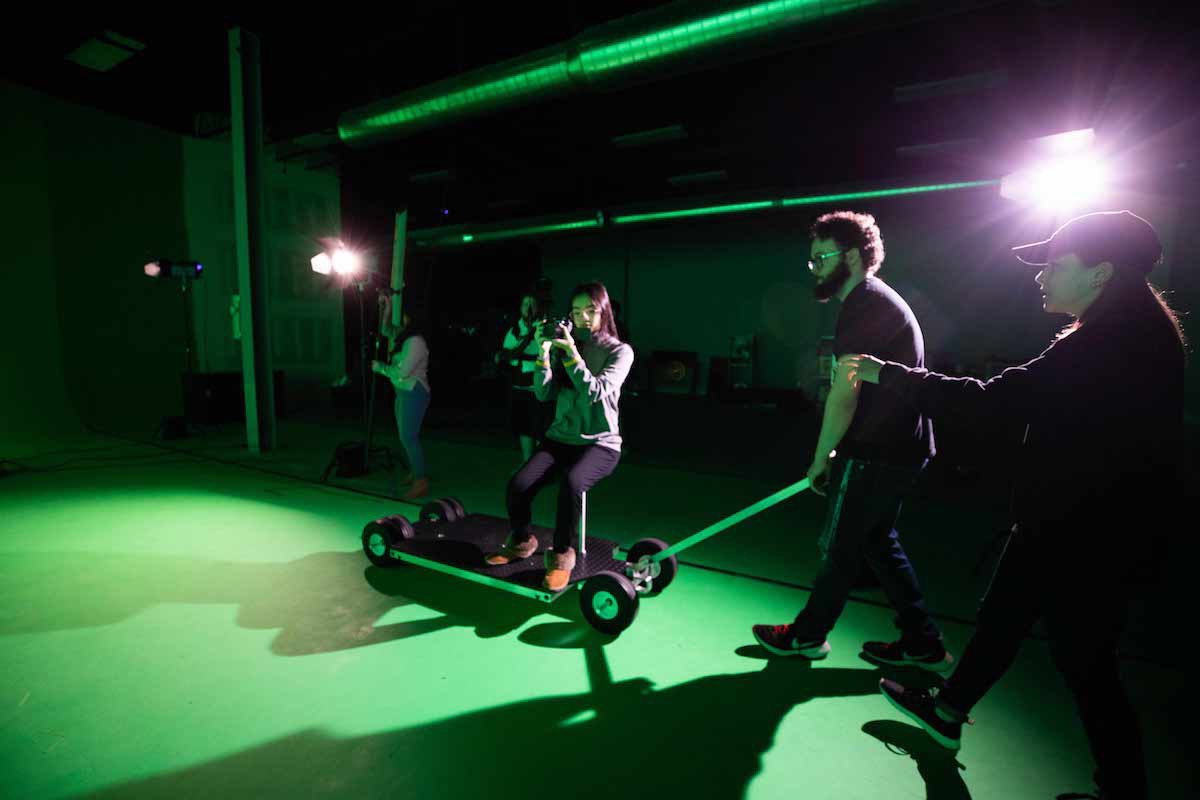The stream of updates at Shocker Studios are mostly high-tech. Some of the most important to the mission are not – paper pinned to a wall.
In between is the mission of Shocker Studios, home to Wichita State University’s School of Digital Arts and the Bachelor of Applied Arts in Media Arts.
“Everything is constantly evolving,” said Justin Rorabaugh, School of Digital Arts director. “It’s important for us, for the student’s sake and for our sake, to stay as much in front of that as we can.”
The high-tech parts of the tour mean talking about video cameras, Dolby Surround 7.1, 4K laser projectors and green screens. An industry advisory board, with voices from around the nation, helps Shocker Studios plan for what’s next and what’s important.
“We started out with a basis of equipment and we augmented our equipment by, I would say, 500 percent,” Rorabaugh said. “When we came in, we had a couple of old cameras. Since then, we’ve added a dozen to that inventory. We want to make sure the students get their hands on the type of equipment they will be using when they’re working in the industry.”
The end of the tour is a look at the old-school jobs board, where black push-pins hold opportunities for work in animation, game design, film and audio production. Habit for Humanity, the Wichita Force indoor football team, a retirement home and other businesses and groups ask for help and offer applied learning opportunities.
The technology upgrades include the two recording studios – one digital, one analog - that are undergoing remodels that include new acoustics, new sound boards and new components.
“That’s with the intention of our students being able to graduate and walk into any studio, anywhere in the world, and understand signal flow well enough they could operate any studio,” Rorabaugh said.
Rorabaugh considers all of it important to Shocker Studios’ growth and its unique status in education. Students are immersed in applied learning experiences from their first days in the program, and that helps explain the growth in enrollment for the program in its third year.
He projects an incoming class of 100-130 students, which would take the total to around 400 next year. That is up from 280 students currently enrolled.
“We don’t have, even regionally, a lot of people who do what we do,” Rorabaugh said. “The most unique part is that it’s a bachelor of applied arts, so it’s intended to be hand’s on. It’s the only bachelor of applied arts in media arts in the country.”
The COVID-19 pandemic moved all classes online for the end of the spring semester and through the summer. In the fall, Wichita State plans to use a combination of in-person classes and remote learning. The transition is smooth for many of the School of Digital Arts classes.
“We are fortunate that many of our classes can translate easier to an online format than some,” Rorabaugh said. “There are some courses though, specifically courses that require the use of specialized facilities, such as our recording studios, motion capture, and film studios that do not translate as nicely to a remote/online format. We have been able to make the transition work."


 File photo
File photo